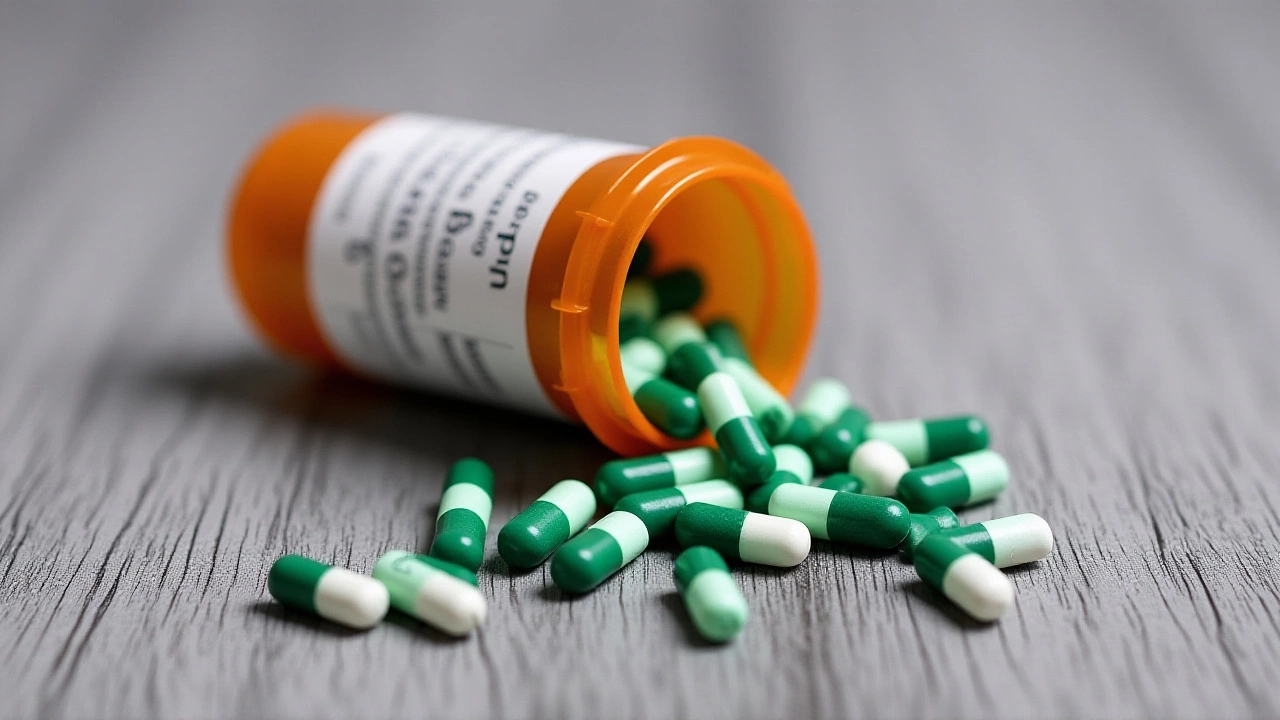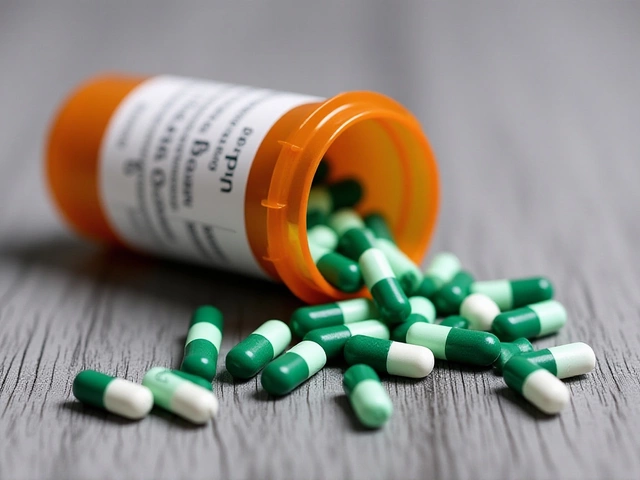More than 500,000 bottles of a widely prescribed blood pressure and PTSD medication have been pulled from shelves across the U.S., with Michigan residents specifically urged to check their medicine cabinets after the U.S. Food and Drug Administration flagged dangerous levels of a carcinogenic impurity. The recall targets Teva Pharmaceuticals USA’s prazosin hydrochloride capsules — a drug used to treat hypertension and, increasingly, trauma-related nightmares — after testing revealed unsafe concentrations of N-nitroso Prazosin impurity C. The contamination, detected in lots distributed nationwide, has triggered a Class II recall, meaning the risk of serious harm is considered low but not negligible. What makes this especially urgent for Michiganders is that many of these bottles were sold through Walmart stores and Walmart.com across the state, putting thousands of households at potential risk.
What’s in the Bottles — and Why It Matters
The affected prazosin capsules come in 1mg, 2mg, and 5mg strengths, packed in 100-, 250-, 500-, and 1000-capsule bottles with expiration dates stretching from October 2025 through February 2027. The real problem? Levels of the nitrosamine impurity exceeded the FDA’s safety threshold under the Carcinogenic Potency Categorization Approach (CPCA). Nitrosamines aren’t new — they occur naturally in smoked meats, drinking water, and air pollution. But when they form during drug manufacturing — especially under certain temperature or chemical conditions — they can accumulate to dangerous levels. The FDA has been cracking down on these impurities since 2018, when similar contaminants were found in popular blood pressure drugs like valsartan. This isn’t the first time Teva has been involved in such a recall. In 2022, the company pulled 140,000 bottles of a cholesterol drug due to improper dissolution, raising questions about its quality control.
Which Lots Are Affected? A Detailed List
Not every bottle is tainted. The recall is limited to specific lots:
- NDC 0093-4069-52 (250 capsules): Lot 3010430A (exp. Nov 2025), Lot 3010613A (exp. Aug 2026)
- NDC 0093-4069-05 (500 capsules): Lot 3010406A (exp. Feb 2026)
- Additional lots: 3010544A (exp. Oct 2025), 3010545A (exp. Oct 2025), and 3010567A (expiration unspecified)
These lots were shipped to distributors and pharmacies across the country, but Michigan saw unusually high volumes due to Walmart’s centralized distribution hub in the region. Local pharmacists say they’ve already seen a spike in calls from patients who recognize the bottle design — and the Walmart logo on the label.
Why Michigan Was Highlighted — And What Patients Should Do
The FDA’s enforcement report didn’t single out Michigan for any regulatory reason. But local health departments and news outlets picked up on it because of the scale of distribution. Walmart’s Michigan operations serve over 150 stores, many in rural areas where patients rely on pharmacy pickup rather than specialty clinics. For many, this medication is a lifeline — not just for high blood pressure, but for PTSD-related sleep disruption. Abruptly stopping prazosin can cause dangerous spikes in blood pressure or rebound anxiety. That’s why the FDA’s guidance is so cautious: Don’t quit cold turkey.
Patients who find a matching bottle should stop using it — but only after calling their doctor. No return instructions were provided by Teva or the FDA. No pharmacy is offering refunds or replacements yet. That’s a gap. Patients are being told to keep the bottle, document the lot number, and bring it to their next appointment. Some clinics are offering free blood pressure checks as a stopgap.
What This Means for the Broader Drug Supply
This recall is part of a troubling trend. Since 2018, the FDA has issued over 40 recalls involving nitrosamines — mostly in angiotensin II receptor blockers (ARBs), but now extending to other classes like prazosin. The root cause? Manufacturing shortcuts. Nitrosamines form when certain amines react with nitrites under heat or acidic conditions. In some cases, suppliers used contaminated raw materials. In others, cleaning protocols were inadequate. Teva, like many generic drugmakers, sources ingredients from overseas, where oversight can be inconsistent. The FDA has ramped up inspections, but the system is still reactive, not preventive.
What’s chilling is that no adverse events have been reported yet. That doesn’t mean the risk is zero. Nitrosamines are known carcinogens — they don’t cause cancer overnight, but long-term exposure increases the odds. For someone taking prazosin daily for five years, that’s a real concern. The FDA’s Class II designation may sound reassuring, but it’s a bureaucratic term. To a patient, it’s just another warning that their medicine might be unsafe.
What Comes Next?
Teva has not issued a public statement beyond the FDA’s notice. The company’s headquarters in Parsippany, New Jersey, has declined interviews. The FDA says it’s investigating the source of the contamination and will update the public if new lots are found. Meanwhile, generic drugmakers are under growing pressure to improve testing. Some experts are calling for mandatory real-time impurity screening — not just batch testing after production. Until then, patients are left in limbo: take a risk with your current med, or risk a dangerous switch.
Frequently Asked Questions
How do I know if my prazosin is part of the recall?
Check the bottle for the NDC code and lot number. Affected lots include 3010430A, 3010613A, 3010406A, 3010544A, and 3010545A, all with expiration dates between October 2025 and February 2027. The medication is sold under the name "prazosin hydrochloride" and typically bears the Teva logo. If you bought it at Walmart, the likelihood is higher — especially if the bottle is 250 or 500 capsules.
Should I stop taking the medication right away?
No. Stopping prazosin suddenly can cause dangerous blood pressure spikes or worsen PTSD symptoms. Instead, contact your prescribing doctor to discuss a safe transition to an alternative medication. Many clinics are offering same-day appointments for recalled drug patients. Keep the bottle — you’ll need it for documentation.
Is there a replacement available from Teva?
Teva has not announced a replacement batch or compensation plan. Other manufacturers produce prazosin, including Mylan and Apotex, but supply is tight. Your doctor may prescribe a different class of blood pressure medication, like an ACE inhibitor or calcium channel blocker, depending on your health history. Insurance usually covers alternatives, but copays may vary.
Why did this happen, and who’s to blame?
The impurity likely formed during the drug’s synthesis or packaging due to chemical reactions between raw materials and solvents. Teva sources active ingredients from global suppliers, some in countries with less stringent controls. The FDA’s inspections are often scheduled months in advance — giving manufacturers time to clean up before auditors arrive. This isn’t negligence, necessarily — but it’s a systemic flaw in how generic drugs are monitored.
What’s the long-term cancer risk from this exposure?
The FDA estimates that taking a drug with this level of nitrosamine for 70 years could increase cancer risk by about 1 in 100,000. That’s low — but not zero. For someone who took these capsules for two years, the added risk is likely negligible. Still, it’s a reminder that pharmaceutical safety isn’t just about immediate side effects — it’s about decades of silent exposure. The real issue is that we’re only catching these problems after the fact.
Are other blood pressure meds at risk?
Yes. Since 2018, over 40 recalls have involved nitrosamines in ARBs, ACE inhibitors, and now prazosin. The FDA maintains a public list of recalled drugs, updated weekly. But most patients don’t check it. If you’re on any generic blood pressure, cholesterol, or diabetes med, ask your pharmacist: "Has this batch been tested for nitrosamines?" It’s a simple question — and it could save your life.



